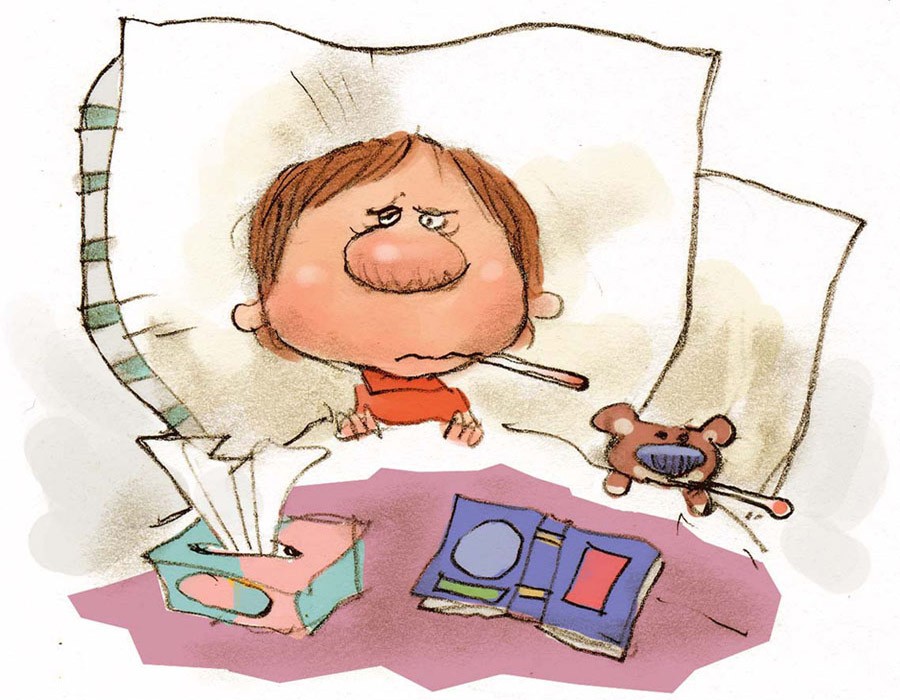It is always easy to decide that you caught a cold if you feel bad. But some symptoms, that we usually consider as cold, may manifest about some serious conditions. You need to know how to distinguish the usual cold and something more serious in order to can get the necessary medical care.

If you are not sure that you have a usual cold, it is better to stay on the safe side and to make an appointment with your doctor. It is especially important when you have some chronic diseases like diabetes, severe allergies, kidney disease, asthma, HIV, or an autoimmune disease. The same applies to pregnant women and people younger than 6 years old and over 65. The usual cold can influence these people in different ways and can develop more serious symptoms than in healthy people. In this article, you will read the list of six signs that signal about something more serious.
1. You are sick for more than four days
A cold usually goes away on its own in three to four days. It begins with itching in the throat, congestion, and runny nose, and after that, a cough usually develops. Although your cough may persist, most symptoms of the cold should leave after four days.
If you actually have a cold, you should feel better after a few days of rest and hydration. If the symptoms last longer, you may have something more disturbing, such as the flu or mononucleosis.
2. You are suffering from severe headaches
Doctors usually pay attention to severe headaches. If they are accompanied by fever and stiffness in the neck, it can be a symptom of meningitis. Tension headaches or headaches that feel worse around the eyes and nose can be a symptom of sinus infection. These kinds of headaches can get worse when you lean forward because this infection conducts pressure in your blocked sinus passages.
3. Your symptoms often recur
It can be difficult to distinguish allergies from colds, as they have common symptoms. But allergies have a tendency to recur frequently. If your symptoms worsen after being outdoors or spending time with a pet, or they tend to appear and disappear at certain times of the year, you are prone to allergies. The best way out is to monitor your symptom history. If you notice any repeated signs, this may mean that you have seasonal allergies or are allergic to something.
4. You have chest pain or breathing problems
Although coughing is a common symptom of a cold, it shouldn’t be too strong to cause symptoms like chest pain or shortness of breath. You shouldn’t neglect these symptoms as breathing problems can be a sign of bronchitis or pneumonia. Abrupt shortness of breath, tightness, and pain in the chest may indicate a pulmonary embolism (clot in the lung).
5. “Localization” of symptoms
Another sign that you have something more serious than a cold is when your symptoms are gathered in one place. Cold usually affects the entire upper respiratory system, but other diseases are marked by severe symptoms in one place. For example, streptococcus causes severe sore throat, so it is even difficult to swallow, but usually doesn’t have other symptoms. Sinus infection can manifest itself through severe headaches and teeth pain, while ear infection leads to pain and stagnation in one ear.
6. You feel pain in the whole body
When you have a common cold, you may feel fatigue and heaviness. But when the other symptoms are accompanied by pain all over the body, it may be flu. It can also make you feel aches in the muscles and chills. You may even have a feeling that you were hit by the train with the flu. Simple everyday routine can make your muscles weak and hurt.
